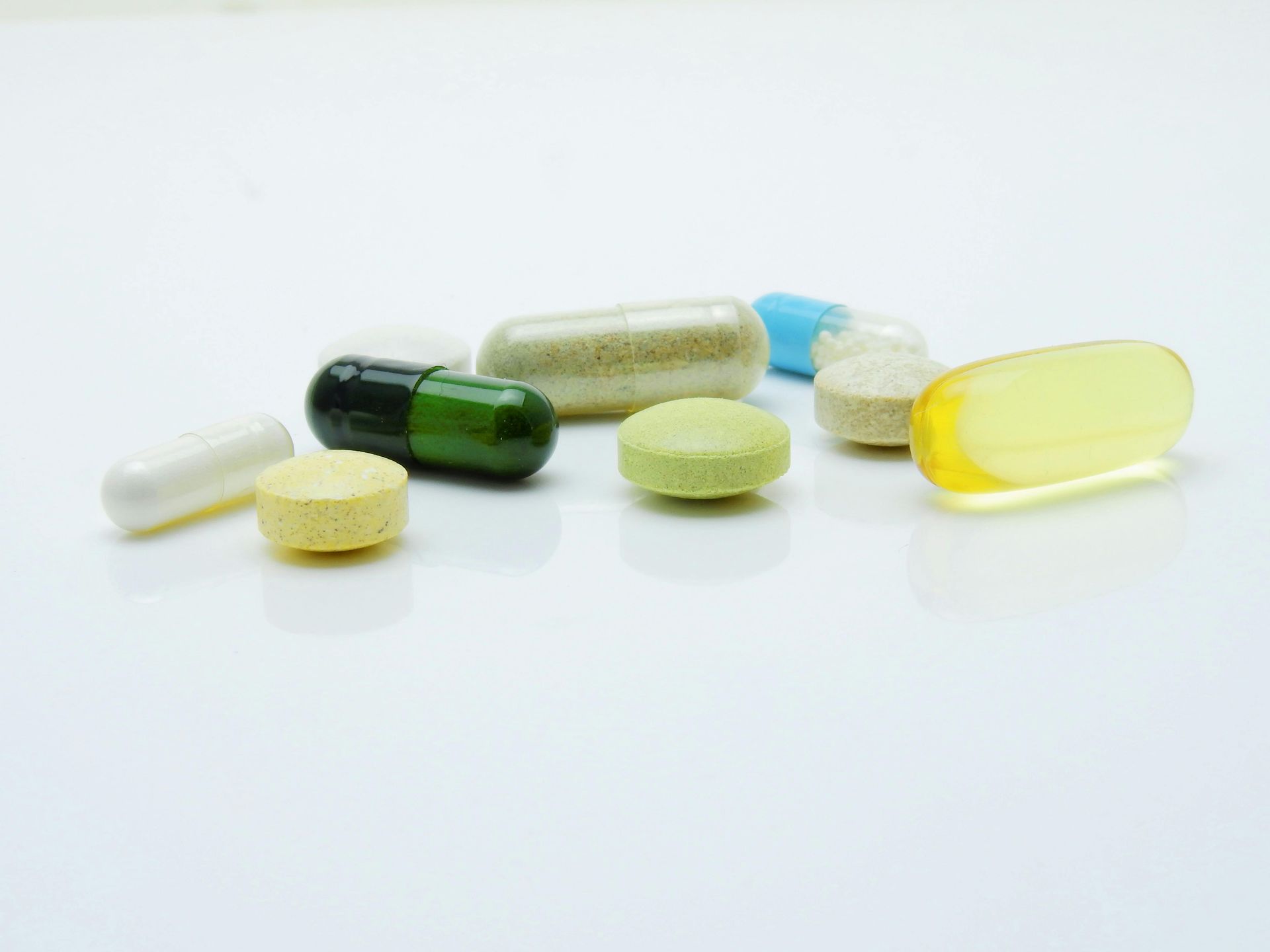30 Nutrition Tips for PCOS Awareness Month
1. Have your vitamin D tested. Women with PCOS are often vitamin D deficient, and correcting the deficiency can help restore more frequent menstrual cycles and promote improved blood sugar regulation.
2. Eat low mercury fish like wild salmon, tilapia, and sardines. These fish contain omega-3 fatty acids that may help reduce the inflammation associated with PCOS.
3. Cut out all sugar-sweetened drinks like soda, sweetened teas, and sports drinks. These beverages can lead to insulin resistance, which only exacerbates the symptoms of PCOS. Instead, drink water with lemon or cucumber slices, or sparkling water with a splash of 100% fruit juice.
4. Avoid artificial sweeteners. They usually serve only to exacerbate sugar cravings and may contribute to issues with blood sugar regulation.
5. Make sure to eat a protein source at all your meals and snacks to help keep you full and satisfied and promote good blood sugar regulation. Moderate protein diets have been associated with better IVF success rates too! Protein sources include meat, fish, eggs, beans, nuts and seeds, or (limited) dairy.
6. Eat only full-fat dairy instead of low-fat or non-fat. In the Nurse’s Health Study, intake of full-fat as opposed to reduced or non-fat dairy was associated with lower risk of ovulatory infertility.
7. Eat cruciferous vegetables daily, as they are great for estrogen-dominant conditions like PCOS. Cruciferous vegetables include broccoli, cabbage, kale, collard greens, and arugula.
8. Avoid refined grains like white breads, pasta, cookies, cereals and crackers. They have no nutritional value. Instead eat whole grains like Ezekiel bread, brown or wild rice, quinoa, and millet.
9. Take a fish oil supplement. Since it’s important to limit fish due to its mercury content, taking a fish oil supplement that has been purified to remove mercury is a great way to make sure you’re getting plenty of omega-3 fatty acids to help reduce the inflammation associated with PCOS.
10. Lose the sugar! High blood sugar can be damaging to egg quality and promote inflammation in the body, besides the fact that it’s empty calories. Cutting out sugar is also an essential strategy if you’re trying to lose weight.
11. Avoid corn, soybean, and cottonseed oils that are rich in inflammatory omega-6 rich fatty acids. These oils are often found in crackers, cookies, salad dressings, and pasta sauces.
12. Eat vitamin D-rich foods like low mercury fish (salmon, tilapia, haddock, sardines) and egg yolks and get some sunshine.
13. Eat fermented foods, which can help promote healthy digestion and balanced gut bacteria.
14. Avoid foods with “soy protein isolate and “texturized vegetable protein, as they contain high levels of phytoestrogens that may be detrimental to fertility. You find these in meat replacement products, many protein bars, and in high protein cold cereals.
15. Eat organic whenever possible, especially meat and dairy.
16. Work towards a healthy weight. Whether you are overweight or underweight, a healthy weight is a really important way to help improve your chances of conception and a healthy pregnancy. If you need to lose weight, try our FirstLine Therapy for Fertility (FLTF) weight loss program!
17. Eat berries. Berries are rich in antioxidants that may help reduce inflammation and prevent free radical damage to eggs.
18. Eat healthy fats – dry roasted or raw nuts and seeds, avocados, low mercury fish, and olive oil.
19. Learn the Dirty Dozen and Clean Fifteen. Check out the Environmental Working Group’s website to learn more. The Dirty Dozen are the top 12 fruits and vegetables with the highest levels of pesticide residues. These are the items to buy organic. The Clean 15 have the lowest pesticide residues so buying conventional versions is a good money-saving option.
20. Avoid Bisphenol A (BPA) by using a BPA-free water bottle and limiting your intake of canned foods. Higher BPA levels in the body have been linked to PCOS.
21. Lose the sugar! High blood sugar can be damaging to egg quality and promote inflammation in the body, besides the fact that it’s empty calories. Cutting out sugar can also be a really helpful strategy if you’re trying to lose weight and manage your PCOS.
22. Try cutting out gluten, especially if you have any digestive issues like diarrhea, constipation, or frequent bloating. If you have poor digestion, you likely are not absorbing nutrients from your food well.
23. Support good digestion with probiotics, fiber from fruits and vegetables, and plenty of fluids. Limit refined grains and sugars.
24. Eat beans and lentils. These nutritional powerhouses are great for PCOS as they are loaded with protein, fiber, iron, folate, and calcium – all very beneficial nutrients when trying to conceive.
25. Avoid trans fats, which are a component of hydrogenated oils. Don’t buy any foods with “hydrogenated oil in the ingredient list as these unhealthy fats may increase inflammation and are linked to decreased fertility.
26. Take a prenatal vitamin that contains all of your B-vitamins. B-vitamins are vital to the ovulation process and especially important for women with PCOS. If you aren’t eating a balanced diet, you may not be getting enough of these important vitamins like thiamin, riboflavin, folic acid, B6 and B12 among others.
27. Eat low glycemic carbohydrates. Low glycemic carbs keep your blood sugar steadier and provide more sustained energy throughout the day. Blood sugar balance can help keep insulin levels lower, which is important because higher insulin levels seem to be a driving force in PCOS.
28. Eat foods with folate. You should definitely be taking a folic acid supplement while trying to conceive, but eating foods with folate is also beneficial. Include leafy green vegetables, beans, lentils, green peas, strawberries, and avocados.
29. Eat slowly and mindfully. These practices can enhance digestion and absorption of nutrients and satisfaction with eating and prevent overeating and digestive issues like gas and bloating.
30. Get plenty of antioxidants in your diet, especially if you’re doing ART. One study suggests that IVF increases free radicals, but increasing your intake of antioxidant vitamins and minerals was able to neutralize the free radicals. Think lots of different colored fruits and vegetables!





